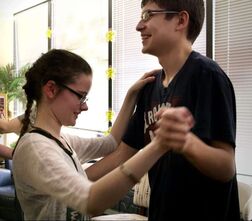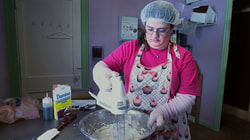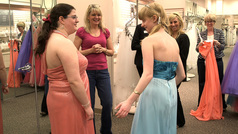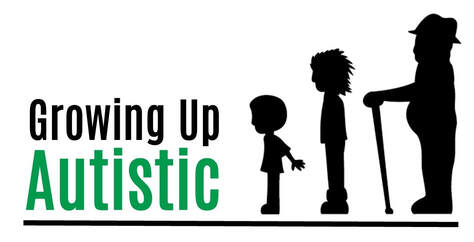
By Patty Pacelli
How to Dance in Ohio follows a group of young people on the autism spectrum who experience nervousness and excitement in planning a spring formal dance. In the new HBO documentary, director Alexandra Shiva said she wanted to show similarities rather than differences of the teens and young adults highlighted in her film, and hoped the audience would feel a connection to the characters, whether on the autism spectrum or not. I believe they accomplished this goal in a unique and heartfelt way that portrays the characters with dignity and honesty.
As the parent of a 22-year-old with high-functioning autism, I found it fascinating to see an honest, revealing look into the group therapy sessions and family life of a group of teens and young adults on the spectrum. The story centered around 12 weeks planning for a dance initiated by their therapist, Dr. Emilio Amigo, of Emilio Family Counseling in Columbus, Ohio. The film captured me right from the beginning, and I was immediately impressed with the counseling skills of Dr. Amigo and his staff, and the way he interacted with the autistic students. The students were so different, but got along well with each other and their therapy workers. I would have been thrilled to have that caliber of therapy for my son when he was a younger teenager. I enjoyed all the characters, but the film helped us to get to know three of the girls particularly well. Marideth, 16 who had difficulty interacting, even with her own family, preferred to be on her computer and was fascinated with research and facts from the Guinness Book of World Records and other similar books. She had a patient, supportive and dedicated mom, dad and sister. It was so touching to see the whole family encourage her to sit and eat with them, make conversation with her, and most heartwarming of all--her sister Margaret brushing and styling Marideth's hair for her.  Jessica Sullivan at work in bakery. Photo Credit: Courtesy of HBO Jessica Sullivan at work in bakery. Photo Credit: Courtesy of HBO
Jessica, 22, had an adorable personality and I loved how conscientious and hard she worked to live as an adult. She had a job at a bakery that specifically employed workers with autism (thank-you to this bakery!) and longed to be independent and eventually live on her own. She also had incredibly supportive and knowledgeable parents who treated her with dignity and respect while teaching her the necessary skills for her independence. One of my favorite lines from the movie was when Jess was at work in the bakery and her manager needed to have a talk with her about how she sometimes came across as being arrogant. She was very upset and hurt that she would be seen that way, because she didn't mean it at all. Her manager told her that she had a great work ethic, but that she needed to learn better work etiquette. This is so true for adults in the workplace with autism. They almost always have better-than-average work ethics, and do their jobs well, with reliability and integrity. However, they are challenged with the etiquette and social interaction that is also a part of the workplace. I loved this message and how it was portrayed.
Caroline, 19, the third main character, inspired me with her determination and goals. She was attending community college with a goal of going to Japan to work, and was studying the Japanese language. Watching her sitting in a corner of a campus building with her Japanese book perched on a pile of her belongings, diligently reciting Japanese words, made me well up with pride for her, seeing how challenged she was by this. She had a stammering issue, even when speaking in English, so it was amazing to see her practicing Japanese! Again, her parents were crucial to her success, and also shed light on concerns, such as when her mom patiently discussed with Caroline what to do if she didn't feel safe riding the bus, and described how Caroline had waited at a college class for the entire hour not knowing what to do because the classroom location had been moved.  Jessica Sullivan, her mom Terry Sullivan, Caroline McKenzie, her mom Johanna McKenzie, and Laura Osborn. Photo Credit: Courtesy of HBO Jessica Sullivan, her mom Terry Sullivan, Caroline McKenzie, her mom Johanna McKenzie, and Laura Osborn. Photo Credit: Courtesy of HBO
My favorite scene of all was when Caroline and Jessica went to David's Bridal with their moms to shop for gowns for the formal. These two girls were friends, and they and their moms worked together to find the perfect dresses, just like any other friends with their moms. Jess was so cute when she said that the dress didn't look good at all, "on the hanger, but it looks beautiful on me!" Caroline was concerned about her strapless dress coming down, but was eventually convinced by the shop assistant that it was secure. It was so obvious that both girls felt beautiful throughout the process, a universal feeling that all young women can and should experience.
There were other aspects of planning the formal, including asking others to be their "date," practicing how to dance, whether to dance, and making conversation. The idea of asking for dates was confusing or undesirable to some, but a few students did pair up for the dance, including Caroline and Jay. The girls finally had their hair and makeup done, put on their dresses, and were dropped off at the formal. They enjoyed dancing and singing to the music as much as any other teenagers and young adults would, and Caroline and Jay even held hands and kissed. The movie ended at the formal with the song by Katy Perry, "Firework," which perfectly fit the message of the movie. It's true that people with autism should never feel like a "waste of space." The words are so true for my son Trevor, and for all people on the autism spectrum. We have learned never to underestimate them, because you never know "what the future holds." These young people will definitely "ignite the light."
0 Comments
Leave a Reply. |
Inspiration for Life with AutismThis blog has a variety of articles about people living life with autism, and topics and ideas that can help in the journey. Guest bloggers are welcome. Inspired by Trevor, a young adult film critic, photographer and college graduate on the autism spectrum. Categories
All
Archives
July 2024
|
Proudly powered by Weebly


 RSS Feed
RSS Feed